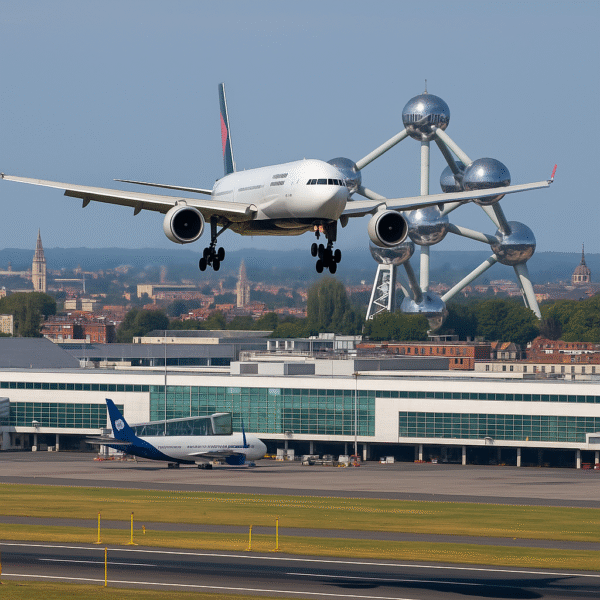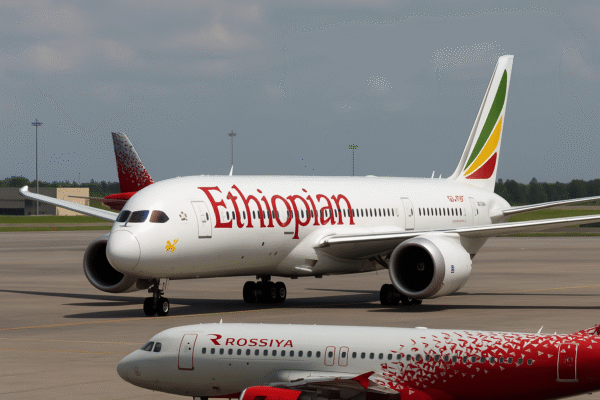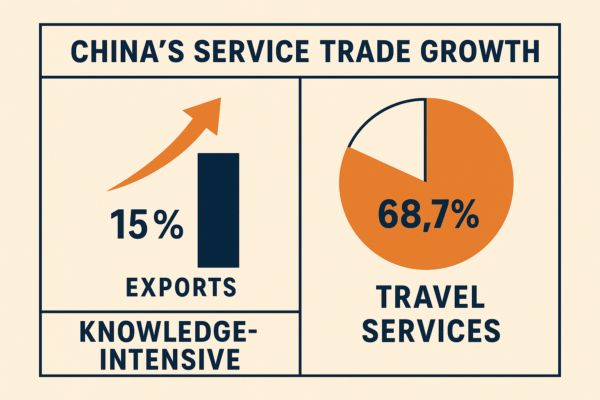Ethiopian Airlines’ Proposed ACMI Deal with Russia Stalls Amid Leasing and Maintenance Complications
Addis Ababa, August 2025 – Ethiopian Airlines, Africa’s largest and most successful airline, is navigating a turbulent path in its effort to finalize an ACMI (Aircraft, Crew, Maintenance, and Insurance) agreement with Russian aviation partners. Once seen as a strategic move to bolster operations and revenue, the proposal is now mired in geopolitical complications, leasing restrictions, and limitations around aircraft maintenance, particularly due to international sanctions on Russian aviation.
Leased Aircraft Restrictions Hamper ACMI Plans
At the core of Ethiopian Airlines’ challenge lies the issue of aircraft leasing. Like many global carriers, a significant portion of Ethiopian’s fleet is leased from international lessors. These leasing agreements often come with stringent clauses that restrict operations in politically sensitive or sanctioned regions—Russia being a prime example since the invasion of Ukraine and subsequent sanctions imposed by the U.S., EU, and other Western entities.
These lessors require explicit approvals for aircraft deployment in high-risk airspaces. Since Russia is currently under widespread international scrutiny, lessors are hesitant—or outright unwilling—to authorize their planes to operate in Russian airspace. This restricts Ethiopian Airlines from utilizing a major part of its fleet under the proposed ACMI arrangement.
Aviation legal experts point out that under the Cape Town Convention, which governs international aircraft leasing, lessors have the right to prevent their assets from operating in regions deemed high-risk due to conflict, regulatory opacity, or inadequate aviation oversight. The current geopolitical climate around Russia creates exactly that type of scenario.
Maintenance, Repair & Overhaul (MRO): Another Bottleneck
In an attempt to navigate around the limitations on spare parts and technical servicing, Russian airlines have explored options to establish or partner with overseas MRO (Maintenance, Repair, and Overhaul) facilities. Ethiopia, with its expanding aviation infrastructure led by Ethiopian Airlines’ state-of-the-art MRO hub in Addis Ababa, has been identified as a potential partner.
However, Ethiopian authorities and international regulators remain skeptical. With Russia facing significant sanctions on aviation components—from aircraft engines to avionics systems—any form of MRO work related to Russian aircraft in Ethiopia could raise compliance issues. Most global aviation suppliers, particularly those in North America and Europe, prohibit re-export of sanctioned parts or servicing of sanctioned entities.
Further complicating the matter is the global tracking system for aviation components. Known as “end-user monitoring,” this system ensures sensitive aviation technologies do not end up in blacklisted or sanctioned countries. Should Ethiopia engage in direct MRO services for Russian aircraft, it may risk secondary sanctions or loss of access to Western aviation technology—an unacceptable trade-off for the East African carrier.
Global Sanctions and Regulatory Oversight
The aviation industry is heavily regulated by international bodies like the International Civil Aviation Organization (ICAO) and regional authorities such as EASA and the FAA. All these agencies maintain strict guidelines regarding compliance with international sanctions.
Ethiopian Airlines, known for its strong global partnerships and reputation, would be placing these relationships at risk by directly servicing or operating aircraft bound for or owned by sanctioned Russian airlines. Even if Ethiopia were to greenlight the ACMI deal, its maintenance activities could face global legal scrutiny, potentially affecting insurance coverage, aircraft certification, and future international agreements.
Strategic Implications for Ethiopian Airlines
Despite these obstacles, Ethiopian Airlines continues to explore avenues for expanding its global footprint. As the only African carrier with a 4-star Skytrax rating and one of the few profitable flag carriers globally, the airline has ambitions to become a central hub for connecting Africa to Asia and Europe.
However, this proposed deal with Russia presents both opportunity and risk. While Russia offers potential new market access and revenue through ACMI operations, the broader cost in terms of leasing complications, reputational risk, and sanctions exposure may outweigh the benefits.
The airline has previously demonstrated strong diplomatic agility and operational excellence, successfully managing fleet expansion and international route development even during crises like COVID-19 and regional conflicts. Nonetheless, this situation is uniquely complex.
The Road Ahead: Will the ACMI Deal Take Off?
Industry insiders suggest that unless there’s a significant geopolitical shift or loosening of sanctions on Russia, the proposed ACMI arrangement may not move forward. Ethiopian Airlines must now weigh the strategic value of the Russian partnership against the potential risk of alienating Western stakeholders and leasing companies.
Moreover, if the airline pursues the deal and violates any clauses in their aircraft leasing agreements, it could face aircraft repossessions or legal action—scenarios that could be devastating to its operations.
As of now, the agreement is stalled, and Ethiopian Airlines appears to be recalibrating its approach. According to sources close to the airline’s leadership, alternative regional partnerships in Asia or the Middle East are being quietly explored.
🧭 Conclusion: A Complex Crossroads for African Aviation
The proposed ACMI agreement between Ethiopian Airlines and Russia underscores the intricate web of global aviation regulation, leasing dynamics, and geopolitics. While Ethiopian Airlines seeks to assert its influence in the global aviation market, it must tread carefully through legal minefields and international expectations.
The airline’s future strategy will likely rely on diversifying partnerships, expanding into less politically sensitive markets, and safeguarding its hard-earned international reputation.
For now, Ethiopian Airlines’ skies remain promising—but cloudy over Russia.
For more travel news like this, keep reading Global Travel Wire




















